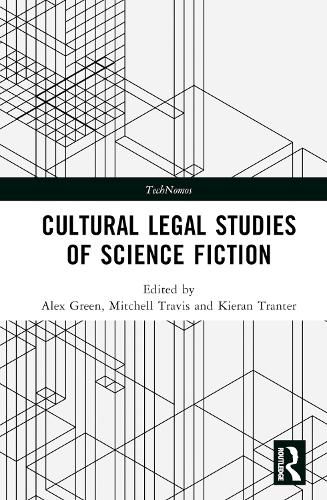Readings Newsletter
Become a Readings Member to make your shopping experience even easier.
Sign in or sign up for free!
You’re not far away from qualifying for FREE standard shipping within Australia
You’ve qualified for FREE standard shipping within Australia
The cart is loading…






This book presents and engages the world-building capacity of legal theory through cultural legal studies of science and speculative fictions.
In these studies, the contributors take seriously the legal world building of science and speculative fiction to reveal, animate and critique legal wisdom: juris-prudence. Following a common approach in cultural legal studies, the contributors engage directly, and in detail, with specific cultural 'texts', novels, television, films and video games in order to explore a range of possible legal futures. The book is organized in three parts: first, the contextualisation of science and speculative fiction as jurisprudence; second, the temporality of law and legal theory and third, the analysis of specific science and speculative fictions. Throughout, the contributors reveal the way in which law as nomos builds normative universes through the narration of a future.
This book will appeal to scholars and students with interests in legal theory, cultural legal studies, law and the humanities and law and literature.
$9.00 standard shipping within Australia
FREE standard shipping within Australia for orders over $100.00
Express & International shipping calculated at checkout
This book presents and engages the world-building capacity of legal theory through cultural legal studies of science and speculative fictions.
In these studies, the contributors take seriously the legal world building of science and speculative fiction to reveal, animate and critique legal wisdom: juris-prudence. Following a common approach in cultural legal studies, the contributors engage directly, and in detail, with specific cultural 'texts', novels, television, films and video games in order to explore a range of possible legal futures. The book is organized in three parts: first, the contextualisation of science and speculative fiction as jurisprudence; second, the temporality of law and legal theory and third, the analysis of specific science and speculative fictions. Throughout, the contributors reveal the way in which law as nomos builds normative universes through the narration of a future.
This book will appeal to scholars and students with interests in legal theory, cultural legal studies, law and the humanities and law and literature.